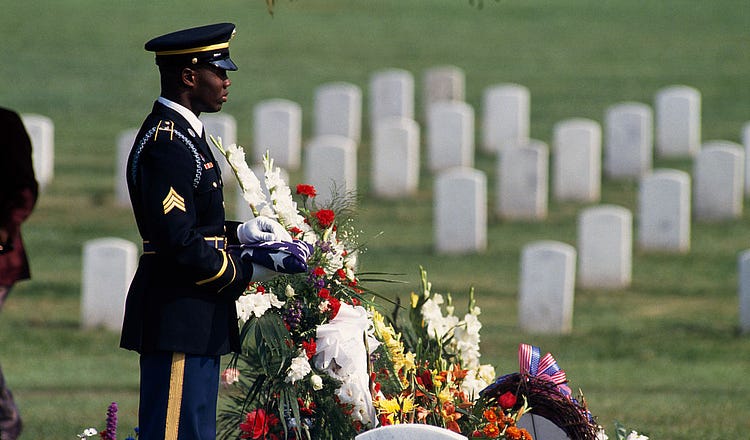The Heroes Who Never Made It Home

Funeral at Arlington Cemetery of Richard Kowalowski, a United States Army Ranger who was killed in Somalia. (Jeffrey Markowitz/Sygma via Getty Images)
A lieutenant who saved his wounded driver. A Marine who fought for her country overseas and battled bureaucracy at home. A sailor who sacrificed himself for his shipmates. And much more.
--:--
--:--
Upgrade to Listen
5 mins
Produced by ElevenLabs using AI narration
177
Memorial Day marks the unofficial start of the summer. Flags wave on front porches, barbecue smoke rises in backyards, and we enjoy a long weekend with the people we love.
Lost in all of that is the fact that it is a day of remembrance for those who made the ultimate sacrifice in service to their country.
The Free Press invited a group of veterans to make…
Continue Reading The Free Press
To support our journalism, and unlock all of our investigative stories and provocative commentary about the world as it actually is, subscribe below.
$8.33/month
Billed as $100 yearly
$10/month
Billed as $10 monthly
Already have an account?
Sign In

